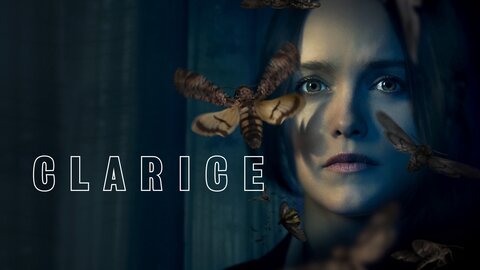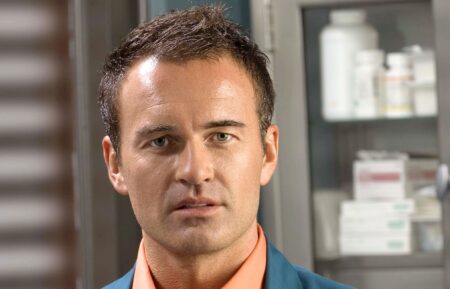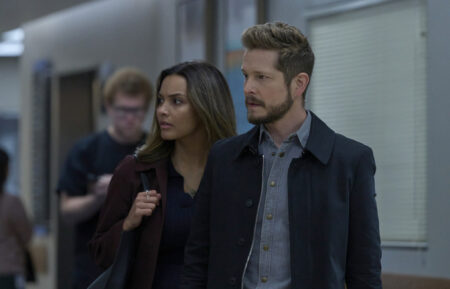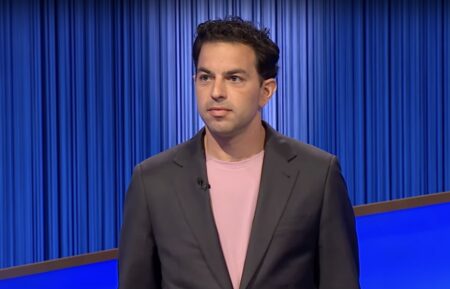‘Clarice’ Star Rebecca Breeds Takes Us Inside the FBI Agent’s Childhood Trauma and Impulsive Detective Work
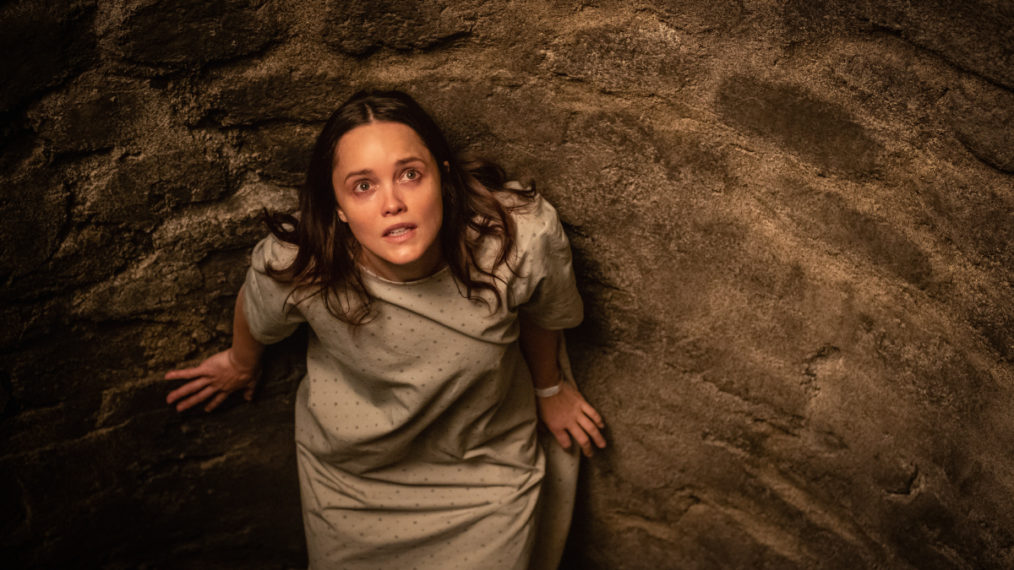
Q&A
[Warning: The below contains MAJOR spoilers for Clarice Episode 5, “Get Right With God”]
Sometimes you go looking for trouble, and other times, trouble just finds you. That’s especially the case in the March 11 episode of CBS’s crime procedural Clarice, which follows FBI Agent Clarice Starling (Rebecca Breeds) in 1993, a year after the events of the blockbuster movie The Silence of the Lambs.
In “Get Right With God,” Clarice awakens to find she’s been drugged and strapped to a hospital bed at Woodhaven Care Center in Washington, D.C., by seemingly innocent nurse Luann Felker, who was actually her much more sinister twin sister, physician Marilyn (Natalie Brown). And of course, it all ties into the larger case of the murdered women case that Clarice has been trying to crack.
But first, Clarice must face her own demons. The drugs given to her by Marilyn cause some serious hallucinations, putting the agent’s past traumas, from the slaughtering of animals on the farm she spent time at as a child to her recent facedown with Lambs serial killer Buffalo Bill, on full display.
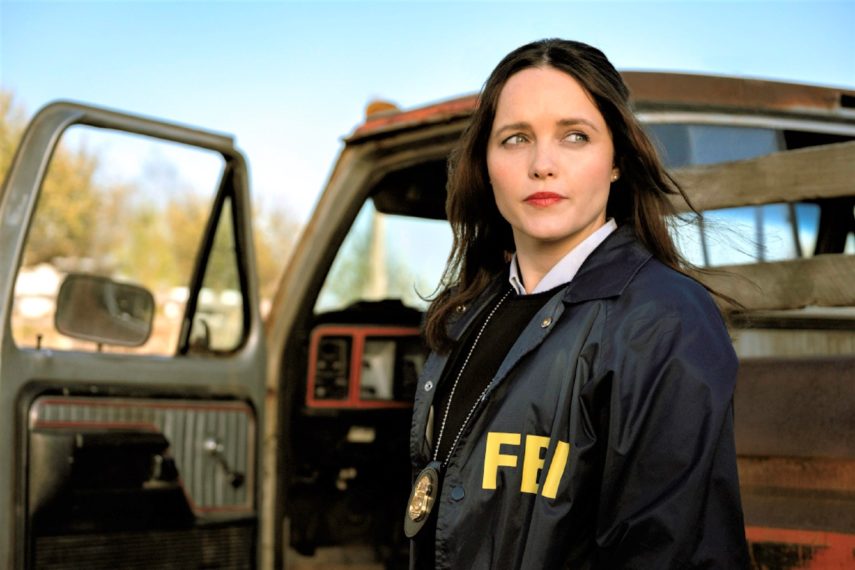
Clarice
Her colleague and roomie Ardelia Mapp (Devyn Tyler) and Clarice’s teammates at the Violent Criminal Apprehension Program (VICAP) band together for a rescue mission, but not before we glean some pretty interesting info about Clarice’s psyche.
Below, Breeds takes a break from shooting Season 1 to talk to TV Insider about Clarice’s mental state, what’s next on the borderline horror show, and more.
Clarice’s hallucinations include her late father [Derek Moran] and the infamous farm from The Silence of the Lambs. Will we learn even more about her childhood?
Rebecca Breeds: Oh yes, we go deep. I can’t spoil it for you, but a lot comes out that is game-changing stuff.
She saw a disturbing vision of Buffalo Bill, too. What does this mean in terms of how stable she really is?
She’s on the edge all the time. I think she’s in total denial. She thinks she killed Bill and she saved Catherine [Martin, played by Marnee Carpenter], this is everything that she trained to do, so why is this affecting her so much? She doesn’t want to admit that it’s still haunting her or to admit any kind of weakness. I think the pushing it down, the denial is why it’s pushing up so strongly and grabbing for her attention so much.
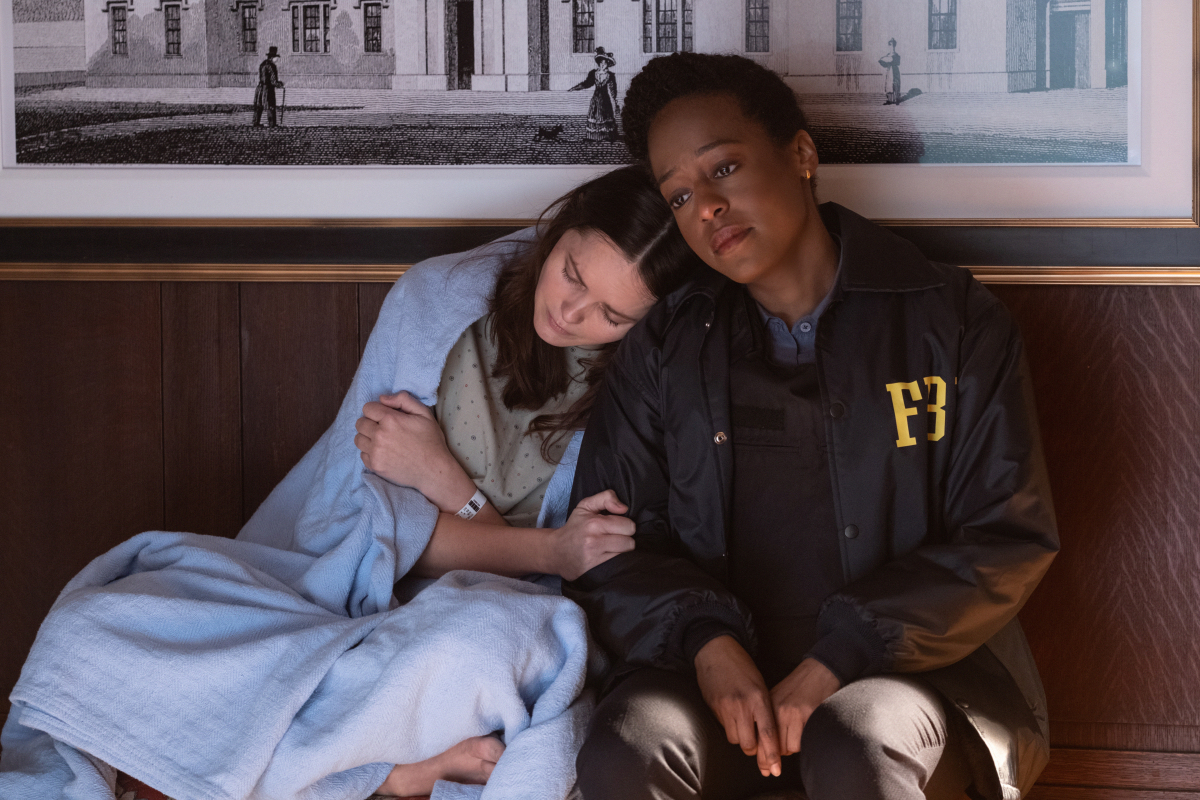
Brooke Palmer ©2020 CBS Broadcasting Inc.
After this new trauma — being kidnapped and drugged by Marilyn, and forced to face these terrible visions — will she finally start really talking to her FBI-issued therapist?
[Laughs] Yes, she can’t keep avoiding that. She’ll start to realize that it’s something she’s going to have to engage in. She starts to take it a little more seriously.
That Clarice consistently goes in without backup is an issue pointed out to her by her boss, Paul Krendler (Michael Cudlitz), among others. Will she face FBI consequences for going solo this time?
I don’t think she was expecting to walk into what she walked into — she thought it was going to be an innocent conversation. She uses her initiative a lot, and she’s so passionate about solving this case. She’s not someone who’s like, “Maybe I’ll think about it and go in tomorrow.” I don’t think she has any clue that it’s going to go in the direction that it does, but this is the reason that the protocols exist. She’s a bit of a martyr. She’ll put herself in harm’s way if it means that she can protect other innocent people, and that gets her into a lot of trouble.
I think on top of that, she idolizes her father, as we see a lot in Episode 5. He’s her safe place that she goes back to in her worst nightmare. She wants to emulate him, and worked alone in the darkness. He was a night watchman, trying to keep everything safe. So, I think that, subconsciously, is driving her into a lot of those dark places by herself as well.
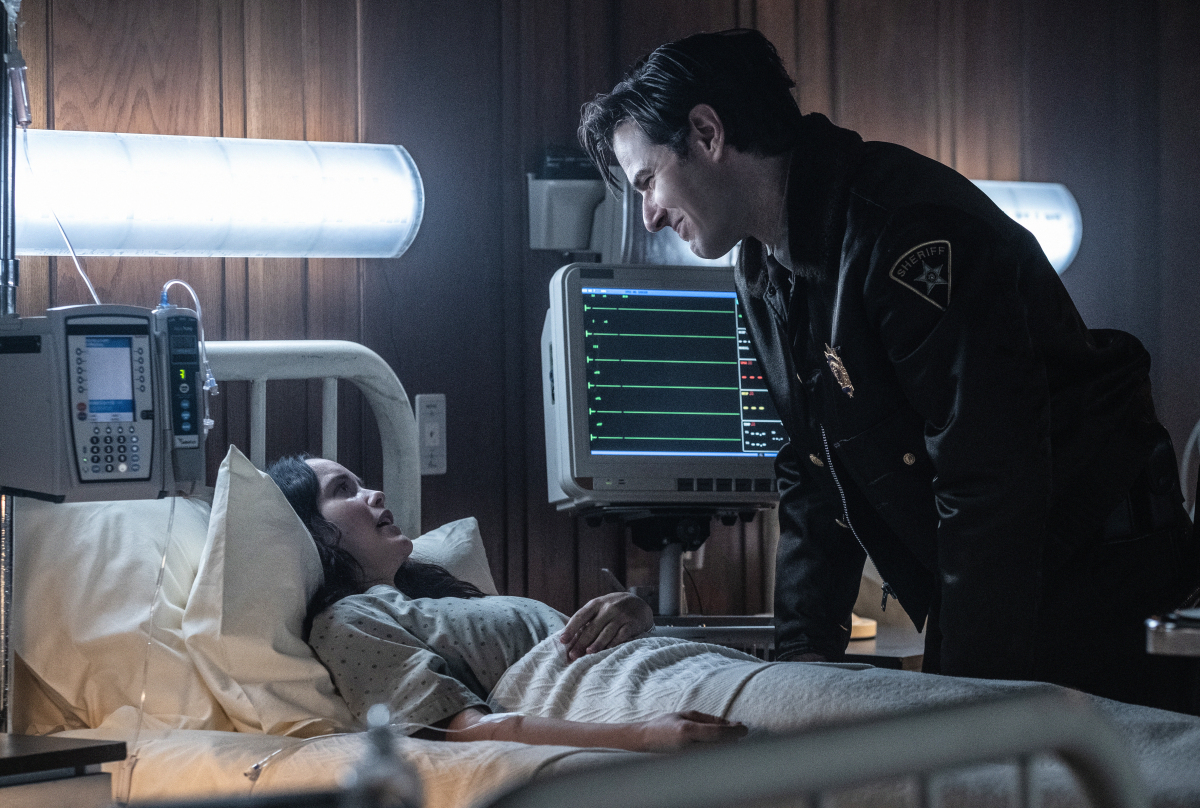
Brooke Palmer ©2020 CBS Broadcasting Inc.
This episode also puts a spotlight on Clarice and Ardelia’s relationship, as they discuss Clarice’s privilege as a white woman. How will we see Clarice come to terms with this fact? And will she come to an understanding that they have vastly different experiences?
It’s definitely a come-to-Jesus moment. It was a hugely humbling experience for her to realize that with all her intelligence, all her empathy, and all her observational skills, it got past her. She didn’t get it until Ardelia held her accountable and gave her context through this wake-up call. All anyone can do is to endeavor to learn, and to try and understand.
Because of their beautiful friendship, we’re going to go on that journey with them. It’s not a one and done. We continue to explore this throughout the season.
What else can we look forward to as Season 1 plays out?
The case continues, but there are also some isolated incidents that we need to get to the bottom of. She’s pulled back into the world that is Catherine Martin and needs to confront Catherine and her relationship with her. She’s forced to stop avoiding her, which is very exciting. Her relationship with the VICAP team continues to unfold. We learn more about our characters there and evolve their relationships.
And we go even deeper into Clarice’s psychology, trauma, upbringing, and we get to see the nitty-gritty of why she is who she is and what happened. There are lots of things that I’ve read and we’re shooting that made me go, “Holy crap, it’s a game-changer!” I just did not see them coming.
Clarice, Thursdays, 10/9c, CBS


